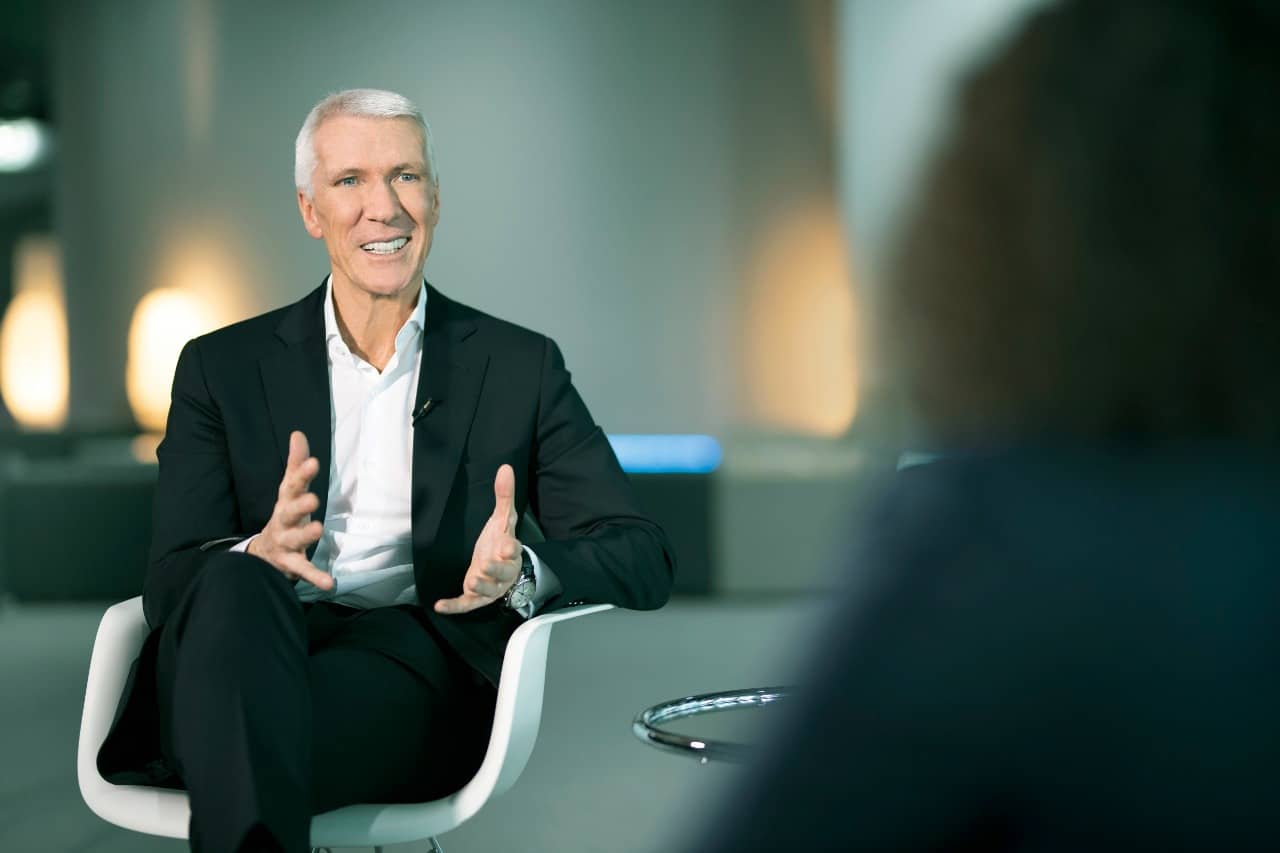There are currently over 110 central banks engaged in studies or pilot schemes for the development of Central Bank Digital Currencies, also known as CBDCs, reflecting increasing interest and popularity in digital currencies.
CBDC is reshaping the way people pay. That’s the reason Gulf countries are also actively working to adapt to the changing landscape of future payments.
Speaking exclusively to the TRENDS, Ralf Wintergerst, Chairman of the Management Board and Group CEO of Giesecke+Devrient (G+D), said that the payment landscape in Gulf countries is heading for significant change as it’s among the fastest-growing e-commerce markets.
Below are the excerpts from the interview:
What is the idea behind CBDC, and why is it important?
CBDC solves several challenges of today’s payment and crypto-currency world. There’s a multitude of payment options, be it cash or digital, as well as the emergence of new forms of private digital money. However, there is currently only one way for citizens to have access to a universal means of payment, legally backed by a central bank, and this is cash. G+D Filia is enabling central banks to maintain the role of a trusted and secure public currency in the digital age.
Are GCC central banks working on CBDCs?
Yes, and they are joining the vast majority of central banks globally who share these thoughts.
Many are already testing in sandbox environments to simulate a digital currency under real-world conditions. Or they are conducting pilots to determine the features required for their specific jurisdiction. The uptake of such technology is quite impressive and the pace quicker than we had anticipated. We, therefore, encourage central banks in the GCC region to move forward with their CBDC initiatives.
How do you see the digital transformation changing the landscape of payments in Europe and Gulf countries, specifically the UAE?
We see a wide spectrum of payment methods in the region, and the UAE is, of course, no exception. From card to mobile payments, people have choices and preferences. The payment landscape in Gulf countries is heading for significant change as it’s among the fastest-growing e-commerce markets. They have a digitally savvy population – some of the most youthful in the world, especially when compared to Europe. And this younger segment has more acceptance of new technologies.
However, despite the abundance of digital natives in the Gulf, it has remained heavily dependent on cash. As G+D, we provide technologies to make currency circulation more efficient, and so we provide technologies to make UAE digital infrastructure safer.
What are your thoughts about cryptocurrencies?
The transformative technology behind cryptocurrencies is fascinating, and its popularity is even more so. And here comes the ’but’: it is not issued by the central bank, can be extremely volatile, and is not widely accessible for payments as it is not legal tender.
Why do people choose crypto-currencies then?
I don’t think it’s purely out of curiosity. I do see a need for a secure, uncomplicated, more efficient and low-cost means of payment. However, crypto-currencies can’t fulfil this promise as it is not regulated and therefore, not secure and not universally accepted. This is the motivation behind a CBDC – to provide a secure, central bank-backed currency to fully harness the opportunities of digital innovation and to provide a safe and truly inclusive public digital currency to everyone.
What would be the role of cash in the future in the wake of digital transformation and the frequent use of plastic money?
First of all, let me stress that cash has even been on the rise during the Covid pandemic. As it always is in times of crisis or uncertainty. Though the digitalization of the payment landscape is taking place, we are convinced cash keeps playing a vital role in the variety of payment methods. It’s simple, it’s easily accessible to everyone and universally accepted.
Your company designs and manufactures currency notes. What’s the most important thing in a banknote?
Every banknote tells a story. Banknotes are an artistic masterpiece in multi-million editions. They are so to speak the “business card” of a country and literally need to tell its story at a single glance. The cornerstone is always the same: How to make security – such as visible and invisible features – design, durability and ease of use join on one note.
For how many countries are you manufacturing banknotes at the moment. Provide a few names?
Giesecke+Devrient provides solutions for secure end-to-end cash management and is a partner of around a hundred central banks worldwide. In this business, we not only produce and distribute banknote paper, banknotes, and technologically advanced security features. The portfolio also includes banknote processing machines of different sizes and complete cash centre solutions. As trust forms the basis of our security business. We can – however – not disclose any details.`
What is your core business?
Giesecke+Devrient (G+D) is an international technology company. We are active in four major domains: Physical and digital currency, ePayments, Connectivity and IoT and in the field of Identities and the protection of digital infrastructures. We develop, produce, service or run innovative solutions for Governments and the private sector. With our international presence, we are generating a 2.3 billion euro annual turnover with a workforce of 11,500.
Do you think that German firms have huge potential for business in the UAE and the wider Gulf region?
This year, we have hosted the first Future Gulf conference of NMI, the latter being the umbrella association of German business for the region. All the big topics were at that conference: Security of the supply chain, energy transition and digital transformation.
Even more importantly, NMI company leaders have returned home very optimistically from this conference: What we have seen is a region on the rise, a prosperous business environment and an optimistic, confident look to the future.








